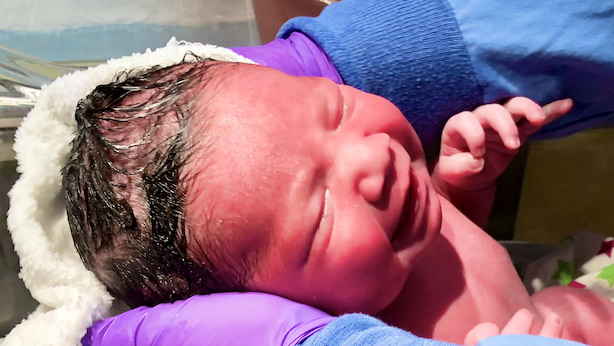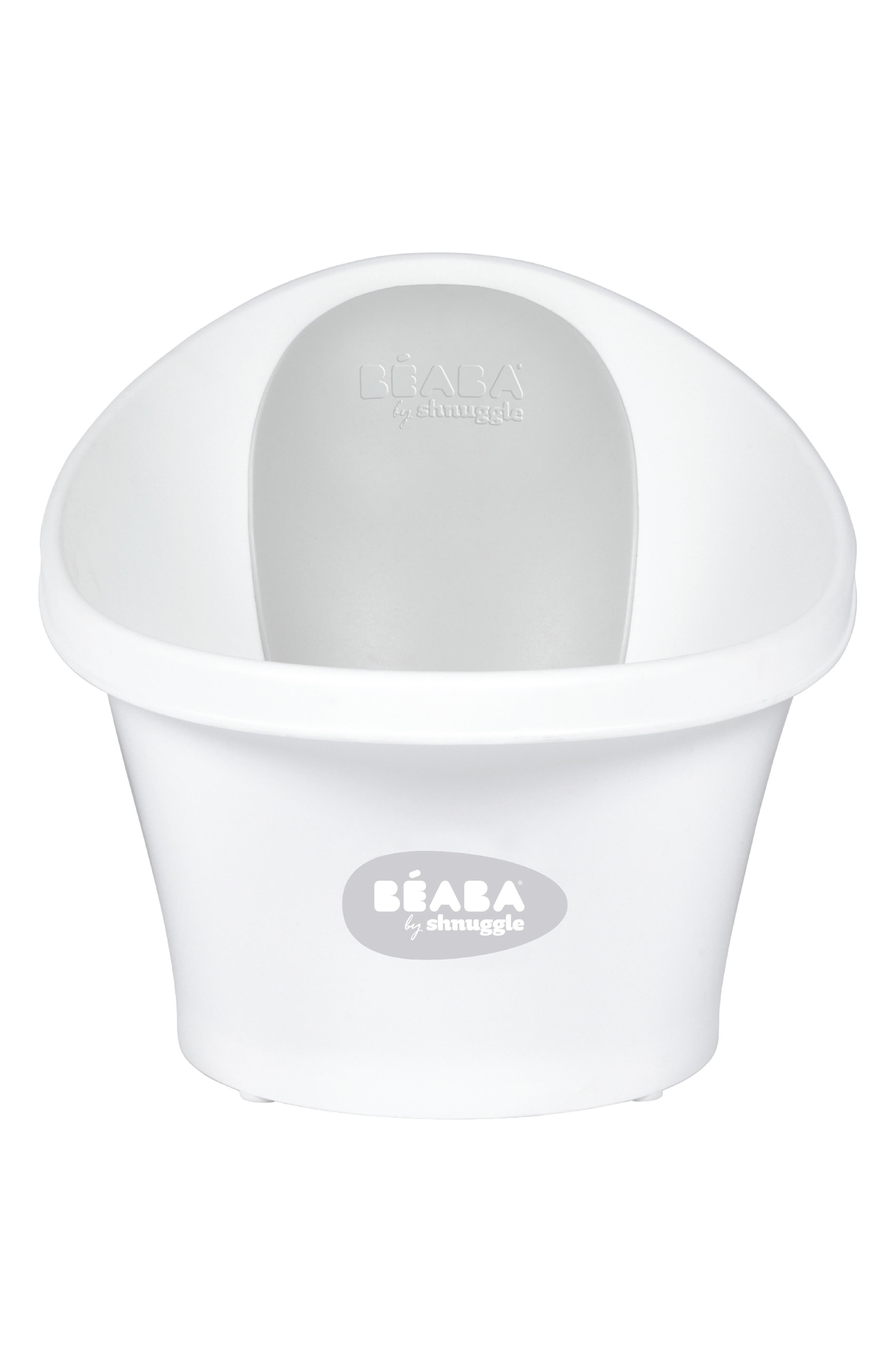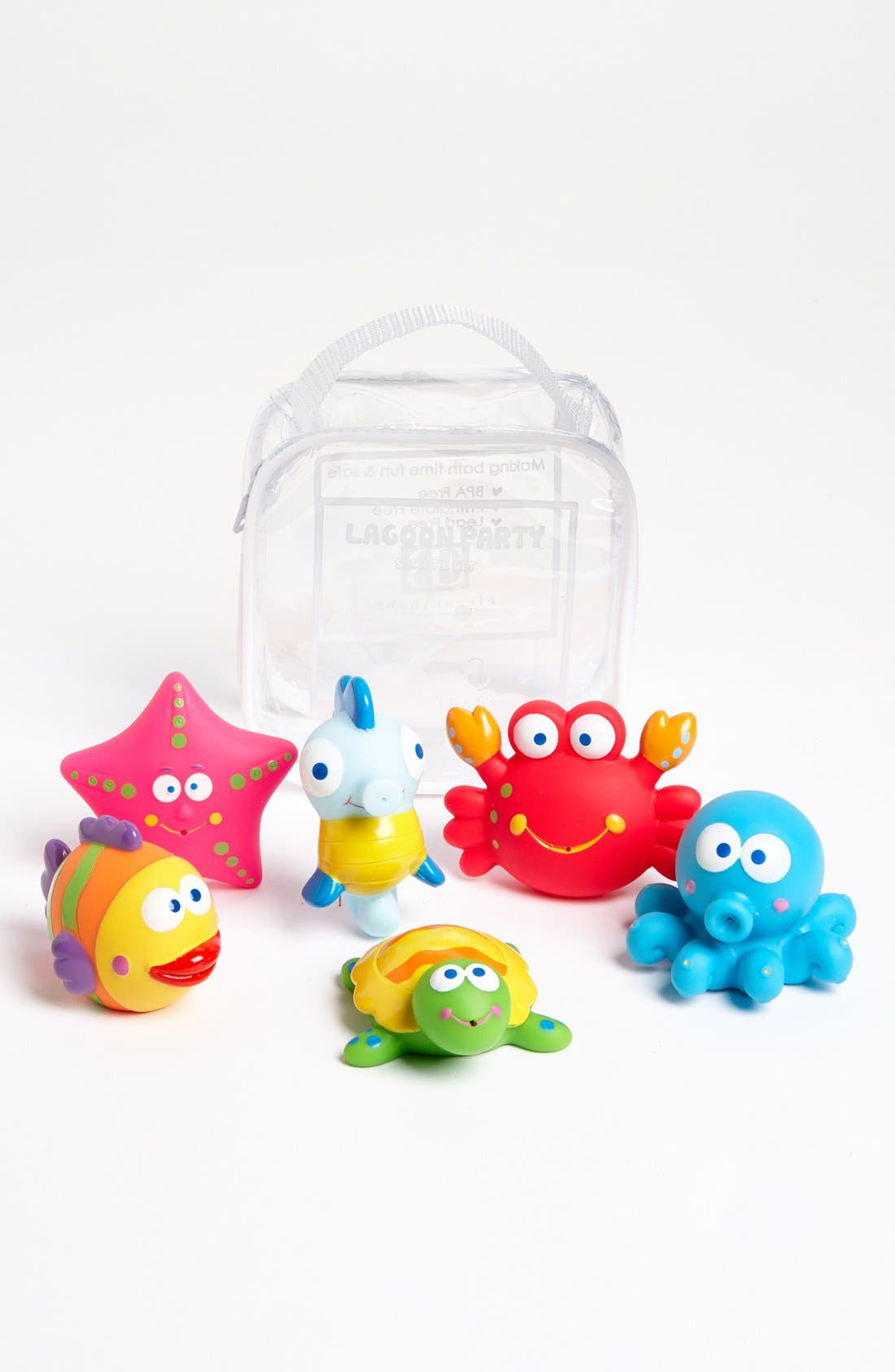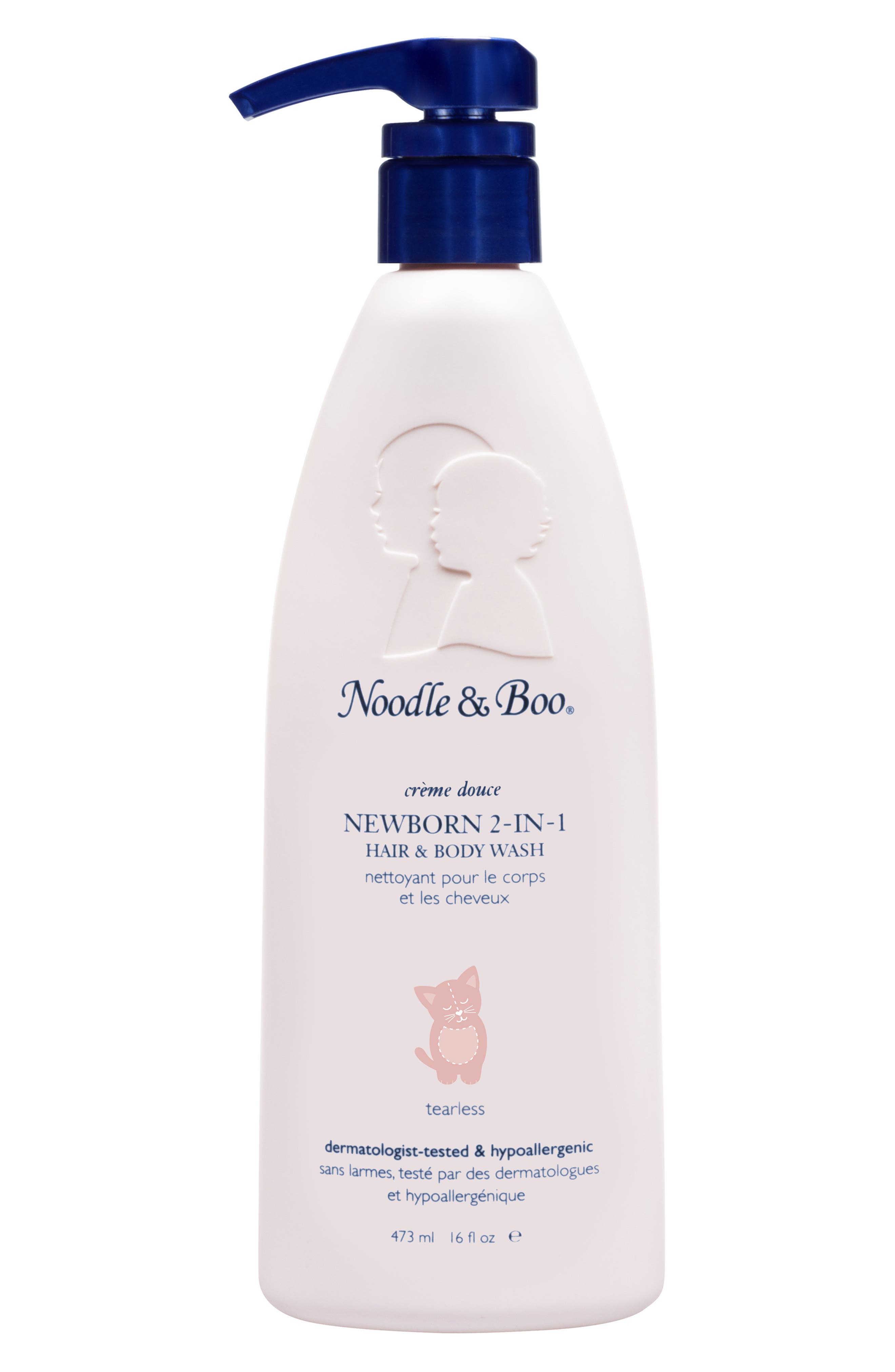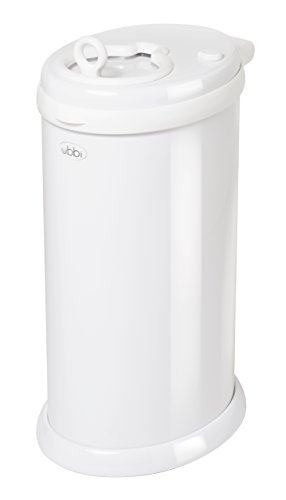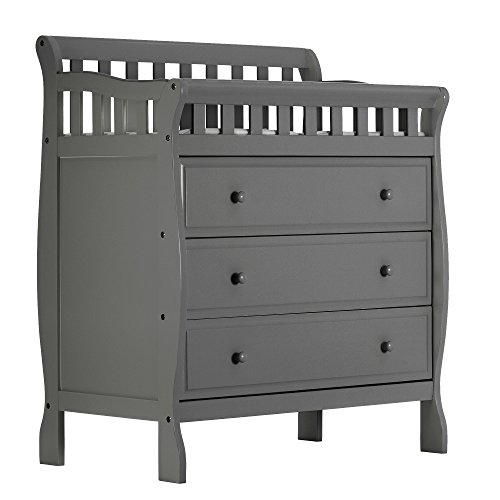Bathtime can be tricky business, but don’t worry, this Newborn bath essentials guide walks you through your baby’s first bath—and all the ones after.
You have all the essential baby gear, set up the nursery, and brought your newborn home from the hospital. But when it comes time for your newborn’s first bath, there are suddenly so many questions.
What About Baby’s First Bath
- When can I bathe my newborn for the first time?
- How often should I bathe my newborn?
- What is the proper water temperature?
Now, I do not want you to worry. We’ve got all our bases covered to prepare you for baby’s first bath—and beyond.
When to Give Your Baby’s The First Bath
It used to be the norm to bathe newborns after birth. Now the World Health Organization recommends a 24-hour wait for the baby’s first bath.
Research indicates that there are significantly emotional and physical benefits to delaying that initial newborn bath. Dr. Katherine Williamson, MD, a pediatrician at Children’s Hospital of Orange County in Orange, California, says that young babies are susceptible to cold. She added, “Cold-induced stress can cause the body to work to keep itself warm, which can cause blood sugar levels to drop.” She also cites studies that show delaying a baby’s first bath decreases rates of hypothermia and hypoglycemia.
Furthermore, Williamson says, babies are born with a cheese-like, waxy coating on their skin, called the vernix. She advises not to wash off because it helps retain heat and becomes an additional barrier to infections.
Moreover, a 2013 study found that delaying the baby’s first bath until 12 hours after birth led to an increased breastfeeding success rate.
Baby’s first bath at home
Once you get your baby home, there is no timetable for giving her first sponge bath. Experts concluded that the timing for bathing a newborn is mainly up to the parents. They added that there is no big rush. Dr. Justin Smith, a pediatrician at Cook Children’s Medical Center in Fort Worth, Texas, says “waiting a few days is fine.”
One mom advises thoroughly wiping the diaper areas and rubbing the vernix into your baby’s skin for its antimicrobial and moisturizing properties.
How Often Should You Bathe Your Newborn?
A sponge bath three times per week is sufficient for newborns. Dr. Williamson says, “Babies don’t need to be bathed that often,” “Newborns don’t really get dirty.” She also reminds you to NOT fully immerse your baby in water until the umbilical cord falls off. And, for circumcised baby boys, continue sponge bathing them until their penis is healed.
Babies tend to be so clean and smell so good. Of course, clean the diaper area, and wipe down all the tiny fat roll crevices under the neck and behind the knees regularly.
Many parents prefer to give regular baths as part of a bedtime routine, which is fine. Dr. Sabrina Fernandez, a pediatrician at UCSF Benioff Children’s Hospital, San Francisco, says that Baths can help soothe fussy babies and be part of a healthy sleep regimen.
Bathing a Newborn
How to bathe a newborn may seem daunting at first, but with a bit of preparation and the correct setup, a baby’s first bath will be a stress-free, joyful experience. Needless to say, your baby will most likely cry. But that doesn’t mean you are doing something wrong.
When you watch the nurse give you baby the first bath in the hospital, you would think she was washing dishes! At that moment you will know that you are not going to hurt your newborn.
Here is what you need to do—and what you need to know—when it comes to bathing a newborn.
Sponge Bathing a Newborn
There is nothing more relaxing than a soak in the bathtub, except when bathing your slippery baby. Baby’s first bath at home can be nerve-wracking at first. Don’t fret. A baby’s bath time can be a fun bonding routine with the correct items by your side.
Newborn First Bath - How to give your Newborn's first bath
Newborn First Bath - How to give your Newborn's first bath.
You will only give your baby a quick, gentle sponge bath for the first week or so after birth. Here is how.
1. Gather supplies.
At a minimum, you will need washcloths, baby soap, a dry towel, and a clean diaper. have all bath items within arm’s reach, so you will not need to step away, and leave your baby in the bath, even for a second.
Here are the must-have baby bath essentials to keep your little one safe and comfortable while getting cleaned up.
- Baby bathtub
- Bathtub spout cover
- Bath thermometer (optional)
- Baby soap
- Baby shampoo
- Rinsing cup
- Bath toys
- Soft hooded baby towels
- Soft washcloths
2. Pick a place.
Decide where you’ll give your baby that newborn bath. Baby bathtubs are very convenient and you can place them in the sink or tub. Some even have a hammock-style sling that supports the baby’s head. Choose a spot that is reasonably warm and comfortable for you to kneel or stand while keeping a hand on your baby at all times.
3. Wash little sections at a time.
After removing her clothes and diaper and placing her in the baby bathtub (or simply on a soft, dry towel), you’ll want to cover the baby with another towel, lifting only a tiny area at a time and patting dry as you go. Using a washcloth dipped in warm water, gently wipe baby all over, paying particular attention to her diaper area and any creases and rolls.
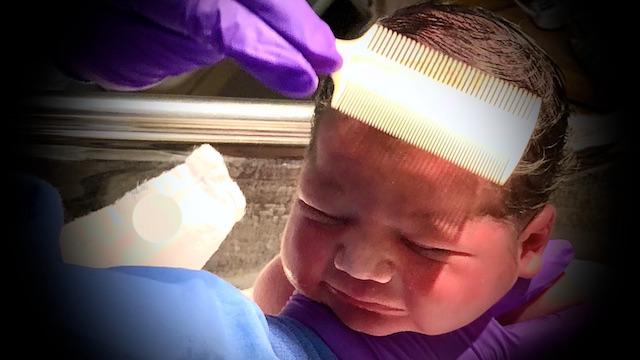
Giving a newborn a bath
You can start giving your baby full baths once the umbilical cord stump has fallen off. Bathing a newborn can be tricky at first, so if possible, enlist the help of a partner or family member. “It’s best if those early baths can be done with multiple caregivers around, so you have extra hands if you need them,” Smith says. After you’ve rounded up your baby bath supplies and decided where you’ll be bathing your little one, follow these steps.
1. Fill the tub with a few inches of warm water.
Aim for about 2 to 3 inches of water to keep the baby safe. Making sure to support the baby’s head at all times, gently lower your little one into the water. The bath temperature should be between 90 to 100 degrees Fahrenheit, never hotter than 120 degrees. While most parents are worried about making the bath too hot, be sure you don’t err in the other direction since babies get cold quickly. Kelly B., whose baby is now 3, learned a thing or two when she nannied for a woman with infant twins. “She taught me that the water should be warmer than you’d expect,” she recalls. Dipping your wrist in is an excellent way to gauge the temperature, but if you’re nervous about getting it right, you can use a thermometer.
2. Keep baby covered during the bath.
Even in a warm bath, the baby can lose body heat quickly. “I always kept my two babies covered with a warm washcloth, and I switched them out with fresh warm ones often,” says Lauren W, a mom of two. “I also turned up the thermostat a little bit before bath time to make the house warmer.”
3. Give baby a good wipe down.
Using a soft washcloth, gently wipe the baby all over, including her head and face. Pay special attention to creases under the arms, behind the ears, around the neck, and the genital area. A newborn bath may seem incomplete without lathering up with baby soaps and shampoo, but it’s not strictly necessary. “There’s no harm in using a natural, scent-free soap, but warm water and a cloth is plenty to get them clean,” Smith says. If you opt for shampoo, cup your hand across the baby’s forehead when rinsing her head, so the suds don’t run into her eyes.
4. Skip the lotions and powders.
Once the baby is out of the bath and wrapped up warmly in a hooded towel, you don’t need to worry about applying after-bath products. Newborn skin can often look dry, so it’s tempting to slather a baby in lotion—but it’s not a must. “Babies are born with soft, supple skin and natural oils, so they don’t need lotion,” Williamson says. Try coconut oil, sunflower oil, or petroleum jelly for any dry patches around the ankles and wrists. And while you may think the baby powder is a nice touch after a newborn bath, pediatricians advise against using it because the particles can get into the baby’s lungs and cause respiratory problems.
In Conclusion
Granted, you have a lot to think about when it comes to a baby’s first bath. But soon enough, bathing a newborn will become second nature. And before you know it, your baby will be sitting up on her own and splashing away in the tub. That is when things start to be a lot of fun!
